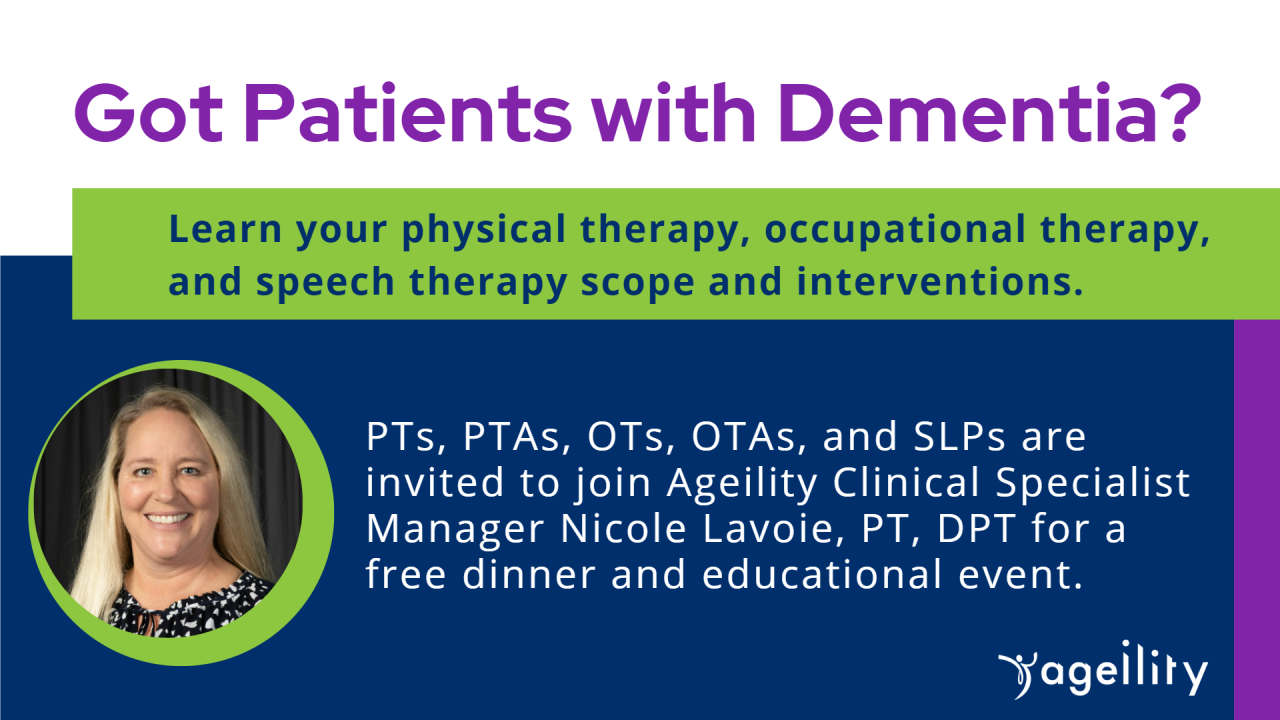Word Finding Difficulties in Seniors
October 16, 2021
How Speech Language Therapy Can Help
We’ve all had the feeling. The word you’re thinking of is right there, struggling to get out, but keeps getting stuck on the tip of your tongue. Difficulty with word retrieval can be frustrating when you’re in the middle of a conversation with your family and need to keep pausing to rack your brain for a word.
What Do We Mean by Word Finding Difficulties?
This is such a common phenomenon that there’s a clinical name for it: “tip-of-the-tongue (TOT) state.” This occurs when parts of your brain temporarily don’t work together to retrieve the word you’re looking for, leaving you feeling a bit like a deer stuck in…ah, what’s the word?
A “TOT state” can happen to anyone, but it’s normal for word-finding difficulties to become more frequent in older adults. Information is processed slower, so lengthier pauses in conversation and tips of the tongue experiences are more common amongst older adults. These issues could be stemming from Alzheimer’s, but more often it’s just part of the normal decline of verbal fluency that occurs during aging. Here are five common causes that could be related:
5 Common Causes of Word-Finding Difficulties
- Stroke: This is the most common cause of word-finding difficulty in adults. Difficulties with word retrieval are usually associated with an acquired language disorder known as aphasia.
- Head Trauma: The left hemisphere of our brain is responsible for our language skills. Damage to brain tissue in this general area could result in word finding difficulty.
- Dementia: Word finding difficulty can sometimes be an early sign of Alzheimer’s.
- Tumors: A brain tumor can also cause word retrieval difficulties. This largely depends on where the tumor is developing. If it invades the left hemisphere, word finding difficulty can become a problem.
- Aging: This is a natural cause of word finding difficulty. As the brain ages, chemical changes occur and memory abilities can begin to fade.
The Benefits of Speech Language Therapy for Word Retrieval
It may be normal for it to be harder to find that word on the tip of your tongue as we age, but that doesn’t mean there’s nothing you can do about it. Developing strong word-finding strategies alongside a speech therapist in a Speech Language Therapy treatment program can help you discover new ways to find words when your brain doesn’t give them to you. Ageility’s trained speech therapists bring hope by using an individual’s strengths to help overcome their weaknesses, like practicing circumlocution to find the intended word. For example, if an individual with word finding difficulty couldn’t think of the word axe, they might say:
“It’s the thing that chops wood. You know, lumberjacks use them; it has a long handle and a sharp edge. They chop down trees with it…what is that thing called?”
Circumlocution is a great strategy for using related words to locate the missing word. It also helps keep the flow of conversation going. It’s a key tool used by Ageility’s SLPs to help clients restore their ability to think clearly and communicate effectively. Here are 10 other mental exercises and activities they recommend that can help treat word-finding issues.
10 Effective Brain Exercises to Boost Word-Finding Skills
- Read every day to increase your vocabulary. With an increased vocabulary, other parts of language such as word finding and fluency will improve.
- Practice reviewing the names of your friends and peers by mentally associating a name with their face.
- Take any letter of the alphabet and try and state aloud as many words as you can that start with that letter. With practice you may notice that your list of words gets longer.
- Write a short segment on your day’s experience in a journal. This will help improve the motor skill of writing. Research suggests that writing with a passion also improves language skills.
- Work on your public speaking as this is a wonderful exercise to stimulate the brain and your language skills. Talk about what you love and your anxiety will be reduced.
- Solve crossword puzzles to promote reading and vocabulary.
- Name objects that you see as you walk about the community.
- Work on the art of the story telling or telling a joke!
- List things needed to complete a simple task. For example: for gardening you would need a shovel, rake, shears, gloves, etc.
- Use the alphabet to cue the word you are thinking of when experiencing word finding difficulties…recite the alphabet…a,b,c,d,e,f,g …g! “I was trying to think of the word goat!”
Word-finding difficulties and TOT experiences are bound to happen every now and then, especially for older adults. With the right tools and strategies, though, you can find that word you’re looking for with ease and keep the conversation flowing. Ageility’s speech specialists can help you get there through individual assessments, treatment planning and care focused on reducing your word-finding frustrations so you can communicate clearly and joyfully.
Experienced Speech Therapy for Older Adults
Are you or a loved one experiencing tip-of-the-tongue moments more frequently? Ageility speech therapy may be able to help. Find an Ageility clinic near you to learn more.




